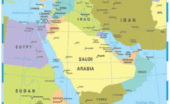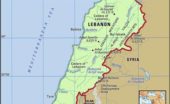Molly Minturn - My family is heartbroken to share that my father died in surgery on Monday, Feb. 10. It…
Wednesday Night #1646
Written by Diana Thebaud Nicholson // September 18, 2013 // Wednesday Nights // 1 Comment
The Gazette ran a full-page piece Sheila wrote on the positive effects of some important Tunisian women. I put it on my website (see below) but there is also the link with The Gazette. The Calgary Herald and Windsor Star also ran the piece. Sheila added “I wrote 17,000 words and The Gazette said they would take 2,000 so I boiled it down. Will start studying Arabic at a course beginning next week and I will go back to Tunisia to interview some of the influential women in politics and then probably find a way to do an electronic book.”
http://microcreditwomenindia.com/microcredit-articles/tunisia-women-reshape-the-political-landscape
Reminder: On Tuesday 24 September, in cooperation with the Asia Pacific Foundation, the Montreal Council on Foreign Relations, and the Indo-Canada Chamber of Commerce, CIC is hosting, a half-day International Business Conference on Canada and Free Trade with Asia Pierre Marc Johnson will deliver the closing keynote. The reception that follows will give plenty of opportunity to meet & mingle with speakers and other trade experts.
The Economist headlines their latest email update Syria, Larry Summers and snow leopards – a pretty good start for our agenda though we hadn’t thought of snow leopards. We would add the riveting (forgive the awkward pun) salvage story of the successful righting of the Costa Concordia and of course, the infamous Charter of Quebec Values.
Syria
Last week’s session with Peter Berezin was as always, excellent, despite our host’s constant attempts to prod him into defending Jim Mylonas’ findings that ‘Syria wasn’t important’ [in terms of markets and not humanitarian considerations, of course]. Happily, Jim will be with us this week and can speak in his own defense!
Along with the pundits, media and public, Wednesday Nighters are sharply divided as to whether President Obama and Secretary Kerry have been singularly clumsy in the handling of the Syria dossier, allowing President Putin to don shining white armour, or whether Mr. Kerry’s ‘slip of the tongue’ was a calculated challenge that may result in softening Russia’s intransigence at the UN. If nothing else, Syria has finally admitted to having a store of chemical weapons and has signed on to the 1992 international treaty banning their use.
For those who did not see it, we recommend Gwen Ifill’s interview with former chief U.S. weapons inspector Charles Duelfer
As the New York Times’ Peter Baker says:
“The Russian-American deal to destroy Syria’s chemical weapons gives President Obama some breathing space, but the list of things that could still go wrong is daunting.” Brief Respite for President, but No Plan B on Syria
The Montreal Institute for Genocide and Human Rights Studies (MIGS) has helpfully organized a panel discussion this Friday (September 20th) on The Situation in Syria: what is next and what are the consequences? It features
Afra Jalabi – Member of the Opposition Syrian Council; Khadouja Mellouli – Oxfam Quebec – Middle East Program; and Stefan Winter – UQAM, Professor of History, Middle East, and will be held at Concordia from 12 to 1:30pm.
Lehman Bros, Occupy Wall Street and Larry Summers
“Two years ago on [September 17th], protesters began gathering at Zuccotti Park in New York City to protest corporate malfeasance and income inequality (among other things). It was the start of Occupy Wall Street, a semi-national movement that — for a few months at least — was being talked about as a force that could re-shape politics heading into the 2012 presidential election.” So what happened? “.. it’s hard to see where Occupy can claim to have had a lasting influence. While President Obama continues to focus on the need to create equal opportunity for all Americans to succeed — he did so again yesterday in an economic-focused speech — there is little doubt that the focus of the coming fiscal fight this fall in Congress will be debt reduction, not income inequality. And, legislatively speaking, little has come from the protests that galvanized Occupy.” (Washington Post )
The news of Larry Summers’ withdrawal (Summers over says the Economist) from the race to the top of the Fed, coincided neatly (deliberately?) with the anniversary of the collapse of Lehman Brothers.
Writing in the WSJ last week, Alan Binder deplores the fact that Five Years Later, Financial Lessons [have] Not [been] Learned reminding his readers that “The Fed chief is not a regulatory czar, but she or he is primus inter pares among the nation’s financial regulators. The Fed’s next chair can set a new, more determined tone going forward—or not. So it is vital that she or he be prepared to move bureaucratic mountains and fend off hordes of lobbyists opposing financial reform, not to bleed sympathy for Wall Street.”
Brett House chimed in with his Globe & Mail op-ed With or without Summers, the Fed would be dovish
“Larry Summers’s reluctant withdrawal from the beauty contest to become the next Federal Reserve Board chairman doesn’t change the fact that U.S. monetary policy will remain loose for years to come, regardless of who ends up leading the U.S. central bank.
With the American economy far from take-off velocity, the choice between Mr. Summers and current Fed vice-chair Janet Yellen was never a choice between a hawk and a dove; it was always a choice between different degrees of dovishness.”
There will continue to be discussion of the politics behind the withdrawal, but as the Washington Post crows: “Since news broke Sunday afternoon that Larry Summers has taken himself out of the running to lead the Federal Reserve, the reaction in financial markets can only be described as elation.”
Charter of Quebec Values
Op-eds abound, pundits seek to outdo one another in profound analysis, while politicians race to the top of the hyperbole mountain (Philippe Couillard: Over my dead body or if you prefer il faudra «me passer sur le corps» ). Now comes the ever-soothing Jean-François Lisée, fresh from his visit to Africa*, who “intervient ainsi dans le but de calmer les passions suscitées” by informing the public that the Parti Québécois government is willing to make “improvements” to the Charter and then setting more proverbial cats among proverbial pigeons by adding that “the five-year opting out would not be automatically renewed forever, describing it as a “transition period” for cities and institutions.” SIGH!
* We wonder how he really felt about the headdresses of the women of Dakar with whom he met (See picture on his blog)
The Toronto Star seems to believe that the PQ is open to changes Quebec government softens stance on values charter – we are not so sure. It is one thing to consult and another to adopt any modifications.A final word on the topic – for the moment – Matthew Friedman has posted a Dear Madame Marois message that expresses more clearly than anything we have seen the deep love that Québécois feel for this unique world we live in, and through reasoned, logical argument concludes:
I can’t help but suspect your motives, Mme. Marois. It seems that you are trying to turn nous inside-out by cynically using the trust that we have in our leaders against us. The Charter seems to be an effort to convince the majority of Québécois who do not live in Montréal or Québec, where cultural and religious diversity is the quiet background to our daily lives, that they have something to fear from those who are different. You seem to be telling them that they have special privileges and that the only way to preserve them is to deny the rights of others. It seems to be a set-up, a cheap kayfabe designed to fail in order to mobilize support for your narrow ambitions.
It appears that you believe that you can play the people of Québec like a violin; that you have so much contempt for us that you can manipulate us at the basest level. I hope I am wrong about you but, if I am not, I know that you are wrong about us.
Another shooting this week; this time in the Washington Navy Yard. The shooter had mental problems, and documented previous brushes with the law, but still had security clearance and a gun permit. It is unacceptable.
As the Washington Post points out: From Newtown to Navy Yard, unpredictable calamities upend Obama’s second term



One Comment on "Wednesday Night #1646"
(The Economist) the US Federal Reserve’s surprise decision to delay “tapering” its monthly bond purchases does not alter the fact that the world economy will eventually have to do without the abundant, cheap liquidity on which it has depended for the past five years. As emerging markets like India are already discovering, the adjustment has potentially disruptive implications for economic growth and financial stability in the rest of the world.